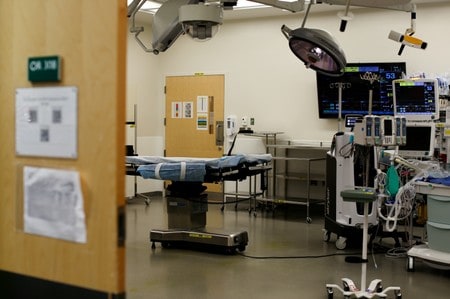By Linda Carroll
(Reuters Health) – Female cancer experts are more likely than their male colleagues to skip scientific meetings that could offer networking opportunities and a chance to catch up with the latest developments in their field, a new study finds.
One big reason the women oncologists give is the lack of available child care, according to the report in JAMA Oncology.
“This study illuminates a potentially actionable opportunity to promote gender equity in medicine,” said study coauthor Dr. Reshma Jagsi, Newman Family Professor and director of the Center for Bioethics and Social Sciences in Medicine at the University of Michigan in Ann Arbor. “Physicians attend national conferences to access leadership opportunities, to network with potential mentors and sponsors, to educate themselves and to disseminate research.”
In 2017, Jagsi and her colleagues surveyed 248 early-career oncologists who worked at National Cancer Institute-designated centers. Most had children who required adult supervision: 77 of the 108 women (71.3%) and 106 of the 140 men (75.7%).
Three quarters of the women had spouses who worked full time, compared to less than half of the men.
The women reported spending an average 41.5 hours a week on parenting and domestic tasks, as compared to 32.2 hours for the men.
Over the previous year, half of the women had attended no more than two conferences, while half of the men had attended at least three. Oncologists of both genders said they thought conference attendance was important for career achievement, and both groups endorsed benefits of attending these meetings, including presenting one’s research, networking and participating in committees.
The women were more likely than the men to say childcare responsibilities would play a role in whether they attended meetings. More women than men, 48% versus 35%, indicated that having children had influenced their attendance of professional conferences “very much” or “quite a bit.”
Women also rated the importance of onsite childcare more highly than men: 6.8 versus 5.2 on a scale of 1 to 10. And more women than men, 28% versus 10%, indicated that onsite childcare was “extremely important.”
Jagsi, who is on the board of directors for the American Society of Clinical Oncology (ASCO), pushed for onsite childcare at the society’s annual meeting this past June. “It was provided without requiring payment for it,” she said. “And it was incredibly popular.”
Dr. Annie Im was one of the oncologists who took advantage of the new program. “It was very forward thinking of them to offer it,” said Im, an assistant professor of medicine in the division of hematology/oncology at the UPMC Hillman Cancer Center in Pittsburgh, Pennsylvania. “My husband and I are both oncologists. And prior to ASCO having childcare we would coordinate and alternate. It was very challenging.”
The new study “is really interesting,” said Im, who wasn’t involved in the research. “I think it’s pretty telling the differences between men and women at least in terms of the challenges of going to a conference and doing those kinds of career-building opportunities. People may have speculated before, but this study shows the differences are there. It does seem like there is a disparity in who ultimately makes the sacrifices.”
At this year’s meeting, “I had the kids during the conference and it really turned heads when I walked by with two kids in a large stroller,” Im said. “Hopefully the time will come when people won’t look twice.”
SOURCE: https://bit.ly/2XYhUFx JAMA Oncology, online July 18, 2019.
(The story is refiled to correct first sentence of paragraph seven to indicate that the numbers cited were medians, not means.)


